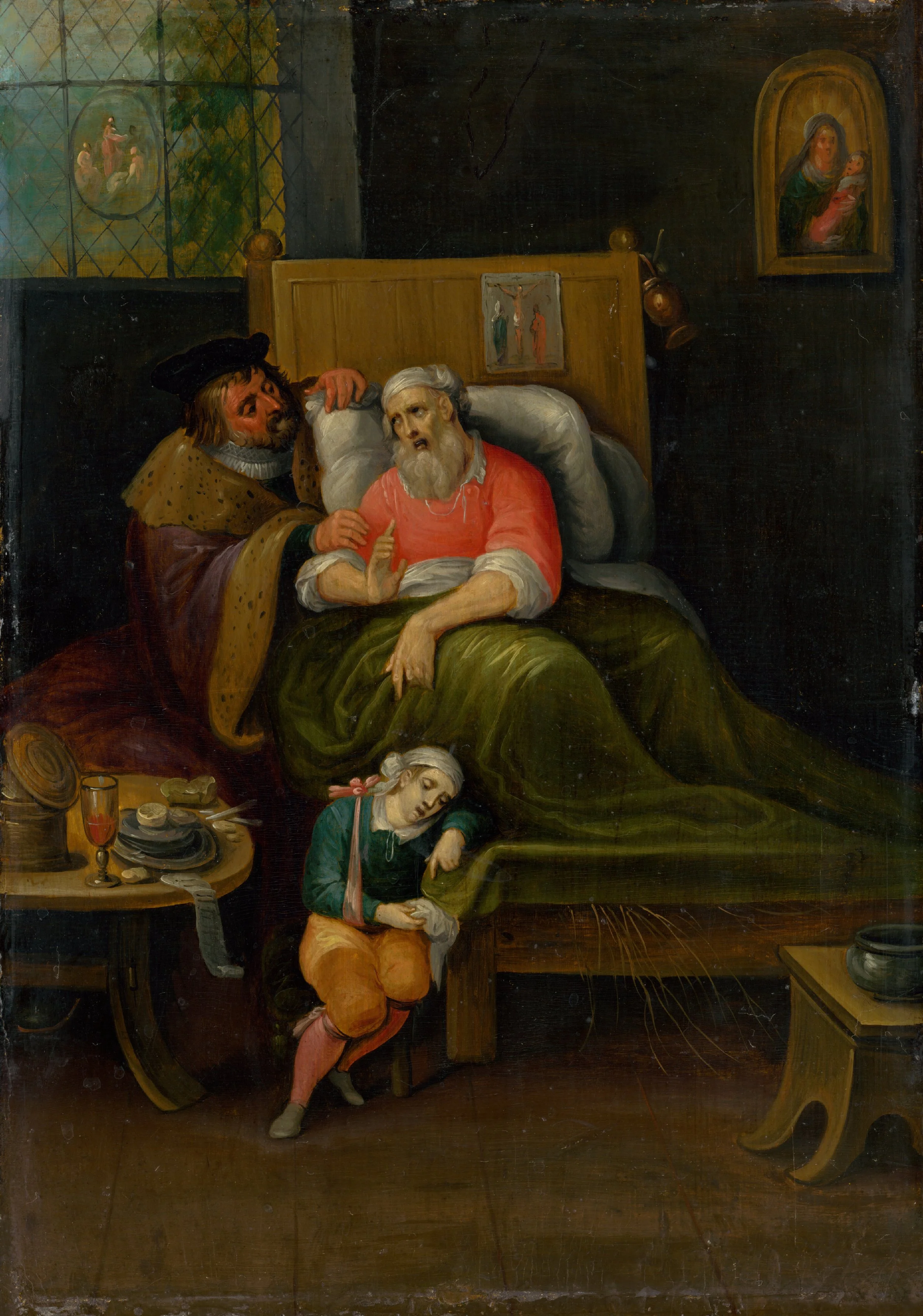
Life-Giving Wounds Blog
Poetry | Art | Music | Blog Search Index
Welcome to the Life-Giving Wounds blog!
Our blog annually releases 30+ posts. We already feature 170+ posts from 60+ authors, who are adult children of divorce themselves, experts in psychology or healing, or both, writing from the Catholic perspective as an expression of their journey of faith and healing. We invite you to browse our library or, if you’re looking for something specific, hop over to our index page where you can find a complete list of categories, tags, and authors. The index also has a search function and a complete list of blog posts arranged chronologically.
Want to get the latest blog post in your email inbox? Sign up for our newsletter (and choose "blog posts" from among the newsletter options) and you will automatically get it.
P.S. Want to write for us? Drop us a line!
FEATURED
LATEST BLOGS
Let Joy Rise! A Reflection on the Nativity of Our Lord
At this Christ-moment, as we wait for the infant Jesus to be born in the mangers of our hearts, let the love of the Father, the Son and the Holy Spirit fill you—LET THE JOY RISE! Put aside whatever inflicts you; LET THE JOY RISE! We are the Body of Christ! Praise the Lord! LET THE JOY RISE AND OVERFLOW!
Encouragement for Adult Children of Divorce Caring for a Sick Parent
...there are certain situations that can re-open past wounds and bring old pain back to the surface. Taking care of my father in his illness is one such situation. ... my father is facing Lewy Body Dementia in a nursing home. He’s been battling this disease for about eight years, and I have gathered a few insights along the way that I would like to share.
Healing from a Rejection as an ACOD
Experiencing rejection from someone you really like, and feel a connection to, is always a painful experience. For an adult child of divorce (ACOD), it can be painful and challenging in a whole other light. I am speaking from personal experience due to a rejection that I experienced recently. I know I am not alone in this. While living in Spain, I met and began talking to and getting to know a Spanish man. He and I shared the same Catholic faith and the same values. We talked so easily and could speak each other’s languages. I sensed no red flags and felt at peace and hopeful about discerning a dating relationship that I could see coming. I believe that he did, too. I began to feel a connection early on, but, alas, before too much time, he rejected me, with the only reason being that I was a foreigner: I am an American of Mexican heritage.
The Fear in Dating and Finding Healing in Singleness as an ACOD
For adult children of divorce, a fear of dating, relationships, and the thought of marriage one day can be very real. As ACODs, we have been profoundly wounded by relationships and marriage. We saw what was meant to last instead fall apart. We were robbed of our need and right to be raised by both of our parents together in the same house, to bear an image and example to us of agape love, which is the kind of love that God has for us. The sacrament of holy matrimony is good, beautiful, and holy. Marriage and family life must follow the vows, which is God’s design and plan for marriage and family life. As children of divorce or separation, we saw distortions of the truth and something beautiful and good turned ugly and undesirable.
Ministering to Teens with Divorced Parents: Some Unique Challenges and Guidance
There are some unique challenges when it comes to ministering to teens from broken homes. Of course, any ongoing situations of abuse or harm must be reported to appropriate authorities—make sure your church or group has mandatory reporting and training in place to keep minors safe! However, there are many layers of the divorce wound that may not be the kind of thing you can or should report to Child Protective Services (CPS). In these cases, awareness and practical pastoral guidance for these teens is best. Below, I want to outline some of the unique challenges faced by teen children of divorce or separation (TCODs):
6 Do’s and Don’ts for a Quality Apology
Apologies — being willing to say “I’m sorry” — are an important part of any relationship. But how do we apologize well, whether it’s to a roommate, family member, significant other or spouse? Here are a few tips — what to do, and what not to do — to help build a quality apology.
Finding Healing as an Adult Child of Divorce
With being an Adult Child of Divorce comes a healing journey that is complicated and messy, at best. This is the most succinct way to describe my own personal healing journey. It is one that I am very much still on, but I know that I am healing and am on the up and up. Like you, my journey has not been linear by any stretch of the imagination. It is one of many turns, bumps and painful feelings resurfacing—but that is because I, like you, am still healing. Healing is not linear; however, the healing journey is always oriented towards heaven, so we are always headed heavenward in our healing. In this post, I will share six points that have been instrumental and life-changing—for me—in my journey towards healing.
Dealing with Financial Uncertainty as an ACOD: My Experience in Going From Striving to Thriving
If your parents divorced when you were an adult, like mine did, you may have experienced strife over paying for a wedding or a car. For me, my parents fought over who paid for what while I was in law school, including the cost of the postage stamp used to mail my monthly check! My parents’ contention over petty things affected my image of God the Father, who cannot be outdone in generosity (see Matthew 19:29). If my parents argued over who paid an extra few pennies to help support me, I certainly could not rely on them to provide anything, including financially.
Beautiful Moments
I thought that if I just sat down and listed all the things I ‘should’ be grateful for in my life that I would then become a person filled with gratitude. I saw this exercise as the ‘fix’ for my pain and struggles. All the people I read about who had done this seemed so happy and peaceful. I wanted that for myself! My experience in life, largely shaped by my parents divorce, had taught me (incorrectly) that if I wanted something I had to get it for myself. So I went for it, only to be disappointed again and again.
Spend time with the Holy Family this Advent and Christmas
The only thing I can really control is my own internal, spiritual life (although I admit even that seems out of control at times!). Right now, I want to do that by spending more time with the most perfect of families! The best part is that I know I am called to be a part of this perfect, intact family! I think that spending time with the Holy Family will keep me focused and restful.
10 Practical Tips for Preparing for Upcoming, Difficult Family Events
What if my mom brings her new boyfriend to Thanksgiving when dad is there? What if I start feeling sad and my much younger sister who did not experience the family divorce the way I did, tells me again to knock it off and just enjoy myself? What if my brother, who is not speaking to dad since he left the family, stomps off to his room? Why can’t we just have Christmas together like we used to?
When Your Parents Divorce, It Sticks with You
The Catechism says that “divorce brings grave harm . . . to children traumatized by the separation of their parents and often torn between them” (2385). Traumatized is not a word to employ lightly, and its usage indicates the Church’s acknowledgment that divorce has deep and long-lasting effects on children that deserve attention and healing.
Sibling to Sibling Challenges and Opportunities for ACODs
One common ACOD challenge is that typical sibling-to-sibling relationship “issues” can be impacted by the family upheaval, and relationships between step-siblings bring fresh challenges, which sometimes can make a bad thing (divorce) worse and can cause even further alienation and discouragement between existing and new family members.
Navigating Boundaries as an Adult Child of Divorce (Part Four: Tips for Setting Boundaries)
May God, for Whom nothing is impossible, help you to navigate all of the relationships in your life so that you may be fully alive as a person, in your relationships with others, and in your relationship with Him.
Overcoming Pornography Addiction as an ACOD: Part Two
Porn and masturbation were supposed to be behind me. They were things from the past, when I had been a foolish teenager. Now I was a faithful Catholic studying theology on scholarship. What would people think? It's one thing to disclose a past addiction to those you love. It's another to return to admit that the past isn't even past.
Navigating Boundaries as an Adult Child of Divorce (Part Three: Boundary Patterns and the Spiritual Life)
Continuing with the themes from Part Two of this series, let us look at boundaries with God in light of the extremes of avoidant independence and enmeshed dependence.
Believe His Voice: Part 2
In my previous post “Believe His Voice,” I told in detail about my struggle with the different voices in my head, all vying for power and control. Once I came to realize and recognize the voices I was hearing, so many things became clearer in my life. Simply knowing what was going on in my mind and heart was (and is) empowering.
5 Invisible Wounds an Adult Child of Divorce May Experience
If your parents are divorced or have split up, you’re not alone. While family breakdown can impact a child’s life in several noticeable ways - such as being more likely to grow up in poverty, more likely to drop out of school, and more likely to experience emotional or behavioral problems - it’s harder to see the invisible wounds that can last into adulthood. But these wounds are no less real...
Forgiveness: Why Is It So Hard?
Forgiveness is hard. I can attest to that. I was born angry (by the looks of my baby picture!) and my parents’ divorce cemented that anger even more. I was the queen of holding grudges; I literally held them for years. But that was before I reverted to Catholicism, and I heard about forgiveness on a daily basis through the Lord’s Prayer and the teachings of Jesus.
Forgiving Your Parents for Past (or Present) Hurts
Keep in mind that forgiveness is not the same as reconciliation (which takes two people), but sometimes must be offered unilaterally. It is a difficult process, but it is also freeing. Forgiveness doesn’t mean forgetting, condoning, or approving the harm done, and it goes hand and hand with setting healthy boundaries. Seeking out therapy and empathizing with the other person’s own struggles helps.

























